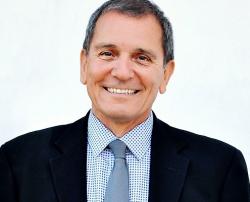It Is Only a Matter of Thinking Differently
I teach people how to change and improve the way they think.
To help people, teams, organizations to get past those mental barriers that hold us back from what we want to make happen in our lives, and to achieve unprecedented performances.
But it starts first with Belief.
If you change your beliefs you will change your behavior and you will also change your performance.
Your team comes to practice with their own set of beliefs of what they can expect.
If you can change or improve the mental barriers that hold a person back-Habits, Attitudes, Beliefs, Expectations, what kind of change or improvement could you realize? Record-breaking performances? Absolutely.
When faced with any challenge or difficult problem, it’s how you think about it that makes the difference and increases your chance of success. Efficacy (the appraisal of one-self to cause, bring about or make happen,) is task-, business-, or job specific. You can be highly efficacious in one area, but when switched to a new situation, you may not be efficacious. No one is efficacious about everything.

Once you develop your efficacy in any area, you increase confidence, you’re able to take bigger bites. You don’t make a list bigger than you think you can cause.
Otherwise, you’ll say, “Nonsense! It’s unrealistic, it’s too much.” Too much for who? Too much for me, presently. It’s all in your mind.
How efficacious is your team during difficult times?
Efficacious synonyms: effective, effectual, successful, productive, constructive, potent.
One result I have found in Dr. Bandura’s (Stanford University) research is that you don’t let yourself want what you don’t think you can cause, even though you’ve got the potential to do so. When you do not have strong efficacy, you settle for less. The stronger the efficacy, the bigger the goals you set for yourself.
As your team goes through difficult times, your team will be confronted with all kinds of difficult tasks. If you teach people how to grow inside they will be able to handle the challenges and avoid the self-protective behavior.
This means getting into mental shape, like any good athlete who looks forward to the upcoming competition.
How your players think on the inside will determine how they are able to deal with what’s coming at them on the outside.

Everyone reiterates his or her forethought. You go over it. When you reiterate positive forethought, positive outcomes, you escalate your efficacy and set bigger aspirations. You build a fierce commitment to the vision. You don’t quit when difficult times come.
It’s important to help the people you’re dealing with think this way. Obstacles can come from anywhere, and we guarantee you it’s how you think about it that makes the difference. If you’re highly efficacious, you plan your way around them, over them, under them and through them.
You never quit.
It is easy to get yourself into mental shape to handle challenges. You can get yourself into a “poor me, isn’t it awful,” victim mentality. However, if you are highly efficacious, you will find you have more control on the inside than the environment – people, problems, situations- has on the outside. “I can figure out a way. I can whip the problem. I am a winner.”
It is essential to develop within us an adventuresome attitude. We cannot stay with the familiar. We cannot stay with what’s safe any longer. If you do not control your anxiety, when you throw yourself out of your comfort zone, you will be hit with negative creativity that tells you to retreat and go back to the familiar.
What is your team’s comfort zone?
Use your forethought to positively project into the future, stretch your comfort zone, and create within you that tremendous feeling of adventure!

Belief controls our potential and the use of our ability, as well as our perception. Human beings build their own thoughts and think in three-dimensional form. We think in words that trigger images or pictures that bring about emotion or performance.
Each day about 50,000 thoughts go through your mind. When they are negative, devaluating or destructive, they accumulate to build negative beliefs. Then you self-regulate at that belief level.
You subconsciously behave in accordance with your belief.
Occasionally, you will do better, but then the pressure builds and you creatively go back to your dominant picture or belief.
Your performance is directly related to your self-image. It is the standard at which you self-regulate. You can temporarily override it, but when pressure builds, anxiety follows, and you let go of your conscious control and go back to the dominant belief. That is why change is difficult. As a human being, you are built for stability.
Now take this same concept and apply it to your team. Your teams, they all have a set of habits, attitudes, and beliefs collectively. Teams have a collective subconscious self-image of itself. Your team self-regulates to that standard. What is your team’s self-image? How do you change or improve it? The same as an individual.

As you adjust and grow, it is wise to take charge of your self-talk. You have probably asked yourself, “What’s the matter with me anyway? How could I be so stupid?” If you dwell on what is wrong with you, not only the present but also going back and remembering the third grade, fifth grade, last month, last year, you reinforce what you don’t want.
One of the most desirable disciplines in effective thinking is to make sure your self-talk is positive, constructive and uplifting. It is also important to consider how you listen to others.
If you are not careful, you will lock-on to what they say, believe it, and behave like it. They might fix the blame and heap it on you. If you do not have high self-esteem, you start thinking, “ I wonder if it’s true?” The more you dwell on it, the more you behave like it.
Who has been the authority figures in your life? From where are you getting reality? Control your self-talk. Remember, you think in pictures. Therefore, when you think about what you want, you are drawn toward it, whether it’s good for you or not. Remember when you were just learning how to ride a bike? Someone might have said, “look out for the rock in the road” and of course the more you look at the rock you are drawn towards it and “smack” you hit the rock.

We, human beings, move toward and become like that which is the dominant picture in our mind.
What is the team’s picture?
Some of you worry a lot with your forethought. You think about what you do not want and run right into it. Highly efficacious people who control their forethought see the rock and visualize their way around it. They see where they want to go. Highly efficacious people control their self-talk.
When you’re confronted with challenges in life, look at what you don’t want and then say, “ What will it look like when it’s fixed?” Lock-on to the way you want things to be.
Remember, your present thoughts determine your future. Our signature program, The 7 Fundamentals of Mental Toughnessä is all about improving your thinking skills to get you beyond the mental barriers that hold us all back from using our most valuable commodity, our God-given potential that is in every one of us.
Jim Madrid is the Founder of AST, a California-based Human Performance firm. Jim is an accomplished consultant, speaker, and author and has developed a nationally recognized performance coaching and player development program.
 Jim Madrid and AST work with professional, collegiate and youth sports. Elite athletes from professional soccer, basketball, baseball, and football have greatly benefitted from the AST curriculum and concepts.
Jim Madrid and AST work with professional, collegiate and youth sports. Elite athletes from professional soccer, basketball, baseball, and football have greatly benefitted from the AST curriculum and concepts.
It’s not clinical, it’s practical.
As an expert in human behavior, Jim and his locker room of expert coaches are sought-after advisors to coaches and players wishing to optimize their performance.
The information presented is research-driven and based on cognitive and neuropsychology, illustrating to each participant how to ‘retrain your brain’ to create and lead an Extra-Ordinary Life.





